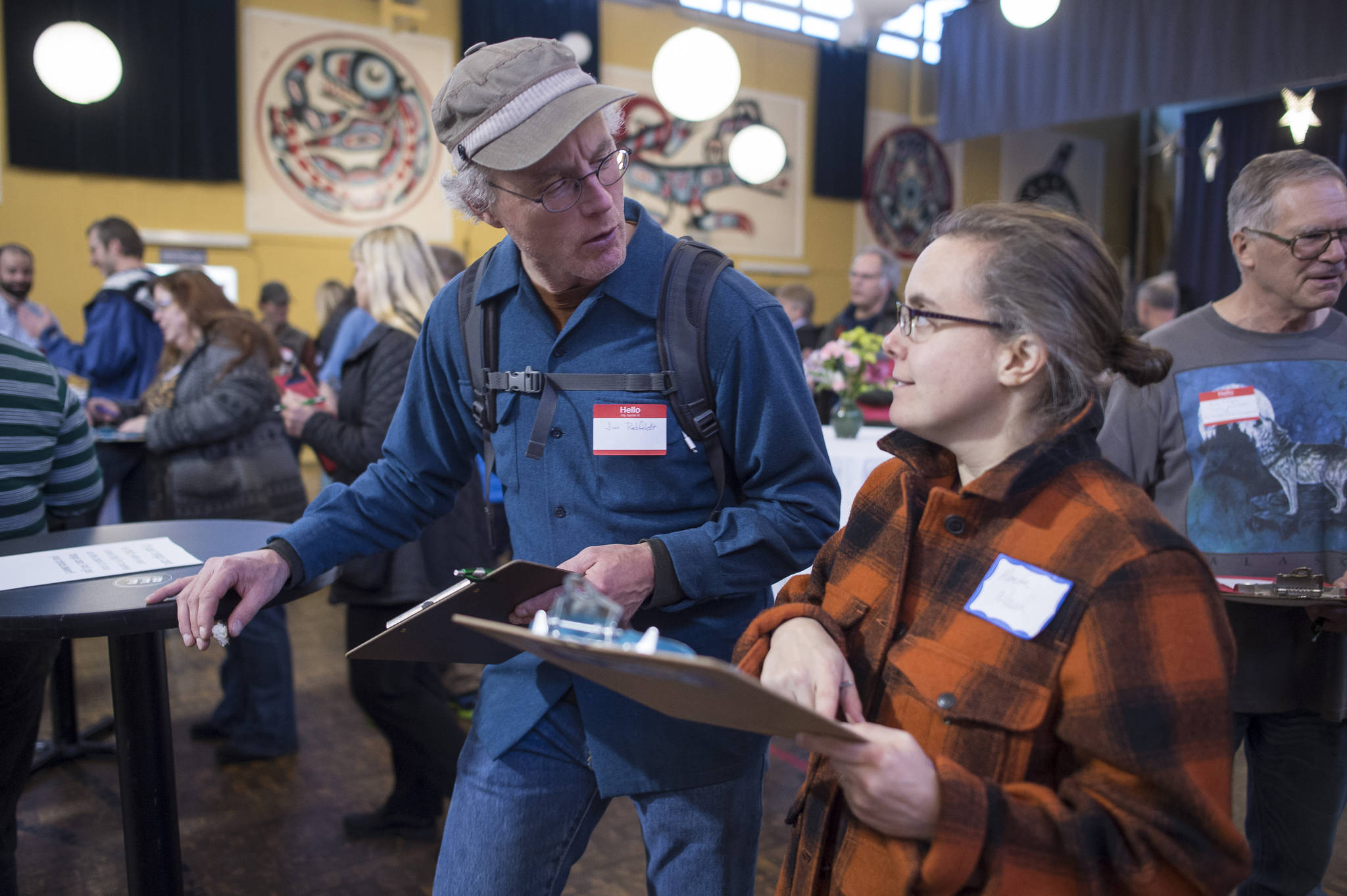“We don’t know anything about how electronics work,” my two students told me when we started. In less than an hour they had made a working flashlight, their faces lighting up as bright as the LED light they were now turning on and off.
This wasn’t a school project, but a workshop put on by Juneau Makerspace, and my students were far closer to retirement age than school age. What’s more, they could see immediate use for their newly learned skill.
“Now we can make our craft projects light up,” they said. If anybody in town gets a handknit Christmas sweater from this year with working lights, my apologies.
You have probably often heard about the importance of teaching STEM (Science Technology Engineering and Math) to kids. There’s even a monthly column in the newspaper about it (this one right here), but what is often overlooked is the importance of STEM for adults. If we want to get our students excited to learn more STEM skills, then it would help if they saw us adults taking a similar interest. There’s good reason to learn STEM skills for yourself, and not just to make your clothes light up (though that is a good reason, so maybe I’m not sorry about your Christmas sweater). If you have a hobby that involves making something, whether it’s woodworking or ceramics, or yes, knitting Christmas sweaters, you’re using STEM skills without even realizing it. Do you need to consider the properties of different materials in a craft project like different fabrics or paints? That’s science. Do you operate a tool to help you in your hobby like a sewing machine or a ham radio? That’s technology. Do you find the most efficient way to put something together, whether it’s furniture or a photo slideshow? That’s engineering. Is there measuring involved? That’s math. Learning more about your hobby or interests is, in effect, pursuing STEM education.
There are more resources than ever before to learn about your interests, hobbies, and other STEM fields. There is, of course, the internet if you want a tutorial or a quick look up on how to do something. There are local community groups that share specific interests too. There are even workshop spaces available to work. Juneau Makerspace, in addition to holding STEM related classes and events, is a workspace for the community. It’s got tools and equipment for everything, including 3D printing and laser cutting, and there’s a community of knowledgeable makers who run it. If you like to work with or want to learn about ceramics, woodworking, metalworking, glass working, electronics, textiles, or any type of arts and craft, there are resources to do so right here in Juneau.
To encourage more STEM learning by young students, it is important to think of your own hobbies and interests in terms of STEM. Making things that you find interesting and enjoyable isn’t just fulfilling, it’s setting a good example to the young people around you. Let them see your process all the way from your problems and questions, to your plan and eventual successes. Let them see your passion for what you do. If you need space, tools, or a community of supportive makers, Juneau Makerspace has your back. Even if your clothes light up with LEDs.
STEM CORNER ACTIVITY
Here are some links to get you started on some seasonal lighting up projects. Use them as springboards to get you and the young people around you making and experimenting.
Use this link from leftbraincraftbrain.com to get ideas for how to make your holiday gift tags light up: https://leftbraincraftbrain.com/christmas-stem-light-up-holiday-gift-tags/
Or, try this link, via TechHive, that features instructions for lighting up sweaters and attaching an ipad to a sweatshirt to make interactive holiday wear/ware:: https://www.pcworld.com/article/2080303/how-to-make-an-ugly-tech-centric-holiday-sweater.html
Here’s an idea for a more open-ended exploration. Take an old string of holiday lights, cut them up, and make simple circuits with aluminum foil and batteries. http://nittygrittyscience.blogspot.com/2014/12/stem-activity-holiday-light-circuits.html
• Sam Bornstein is the president of Juneau Makerspace, a local nonprofit that supports STEM and making in people of all ages. STEM Corner is a monthly column about Science Technology Engineering and Math in Juneau, written by a rotating group of Juneau STEM Coalition members.

